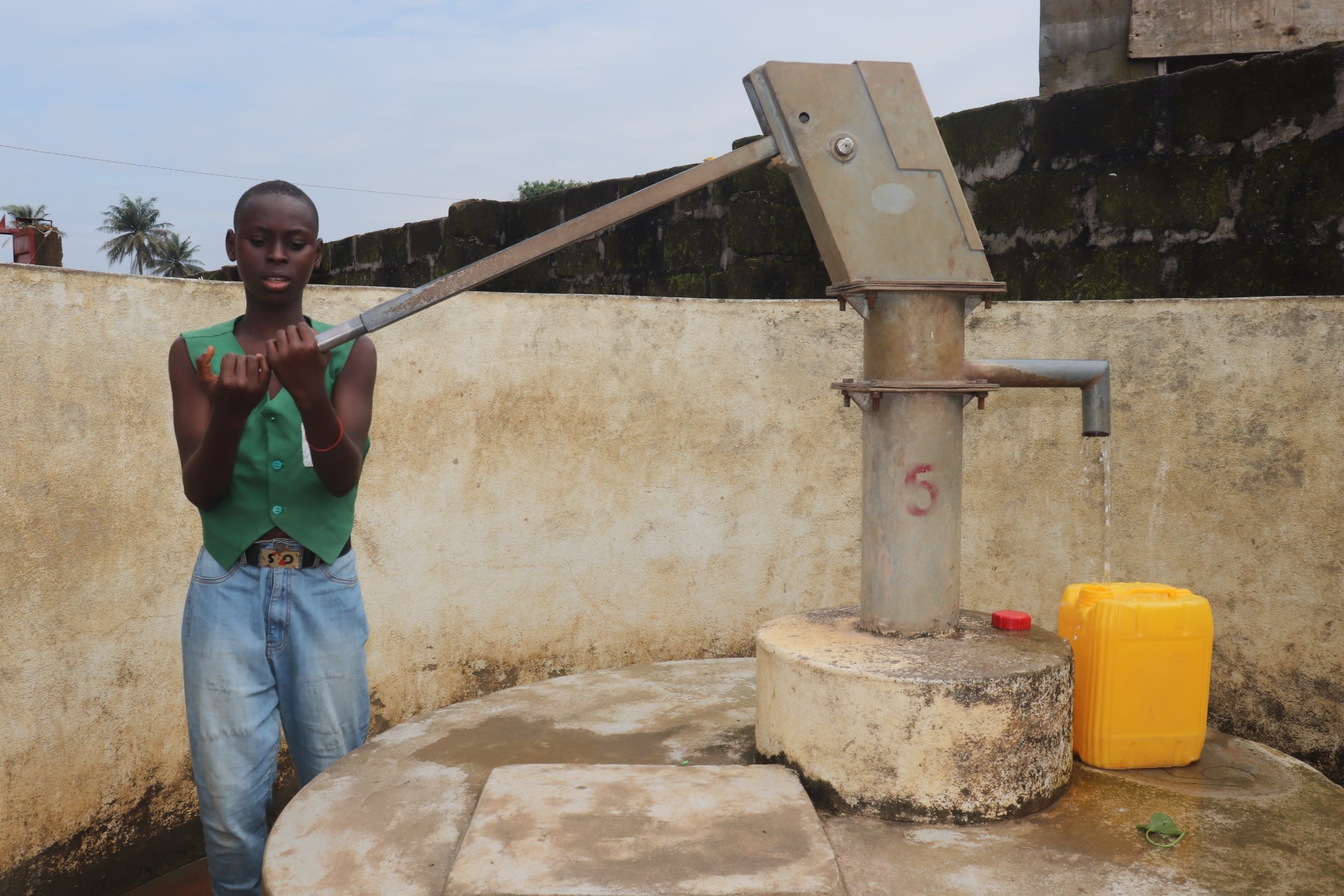The 200 people in the village of Neneh Koroh do not have a reliable, clean water source. Looks can be deceiving, because there is a hand-pump well in the community, but it is unprotected, does not provide sufficient water, and is open to contamination. There is no fence to keep animals out of the area, and because the water level is low, soil is stirred up within the well whenever several people use it.

On average, people make nine trips to the well every day to have enough water. But regardless of the number of trips made to the well, it runs dry, and no water can be found.
Especially during the dry season, community members must rely on the surface water they can collect from a nearby stream in a swampy area. Individuals must cross a treacherous road before traversing down a narrow and steep footpath to reach the stream. The path leads through a forest area where wild animals live. It is risky and exhausting, especially for children.
"Sometimes, I feel pain in my body because of the water I fetch every day, especially from the long distance. I had fallen on my way from the stream with a bucket on my head full of water and got injured on my knee and elbow," said 13-year-old Saidu.
Because it takes so long to get to the stream to collect water, daily activities like doing laundry, cooking, cleaning, and attending school are delayed.
Mabinty Kamara, a 39-year-old petty trader, shared her experiences. "This (the dry season) is the most disturbing season in the year I would never like to go through. I have to walk down to the stream water source to wash clothes and carry them to the community. I could only do that once a week because I had my business to sell at the market. It is challenging to carry wet clothes [and] climb the hill along the road from the stream water source. The main well I believe, will be a source of solution for the water crisis in this community."
While visiting, I heard a recent account of a 13-year-old girl from the community who ran away from home because she was beaten for not fetching water for her family. She had avoided collecting water because the trek to the stream was arduous for her. After two weeks in a nearby village with other family members, she returned home, but being away from school for two weeks was a significant setback in her academics.
Converting the hand-dug well to a borehole well will help provide a safe, sustainable, reliable water source for this community. Having access to water near their homes will allow people to get on with activities that improve their daily lives.
What we can do:
New Well
Where we will be drilling is centrally located and will relieve many people of the long journey to fetch water and the challenge of accessing clean water.
Our team will drive over the LS200 mud rotary drill rig and set up camp for a couple of nights. Once the well is drilled to a sufficient water column, it will be cased, developed, and then tested. If these tests are positive, our mechanics will install a new India Mark II pump.
By drilling this borehole, the surrounding community will be provided with plenty of accessible, clean drinking water.
Training
There will be hygiene and sanitation training sessions offered for three days in a row.
Community members will learn how to make a hands-free handwashing station called the "tippy-tap." We will use these tippy taps for handwashing demonstrations and will also teach about other tools like dish racks and the importance of properly penning in animals. We will highlight the need to keep restrooms clean, among many other topics.
This training will also strengthen a water user committee that will manage and maintain this new well. They will enforce proper behavior and report to us whenever they need our help in solving a serious problem, like a pump breakdown.



 Rehabilitation Project
Rehabilitation Project






























